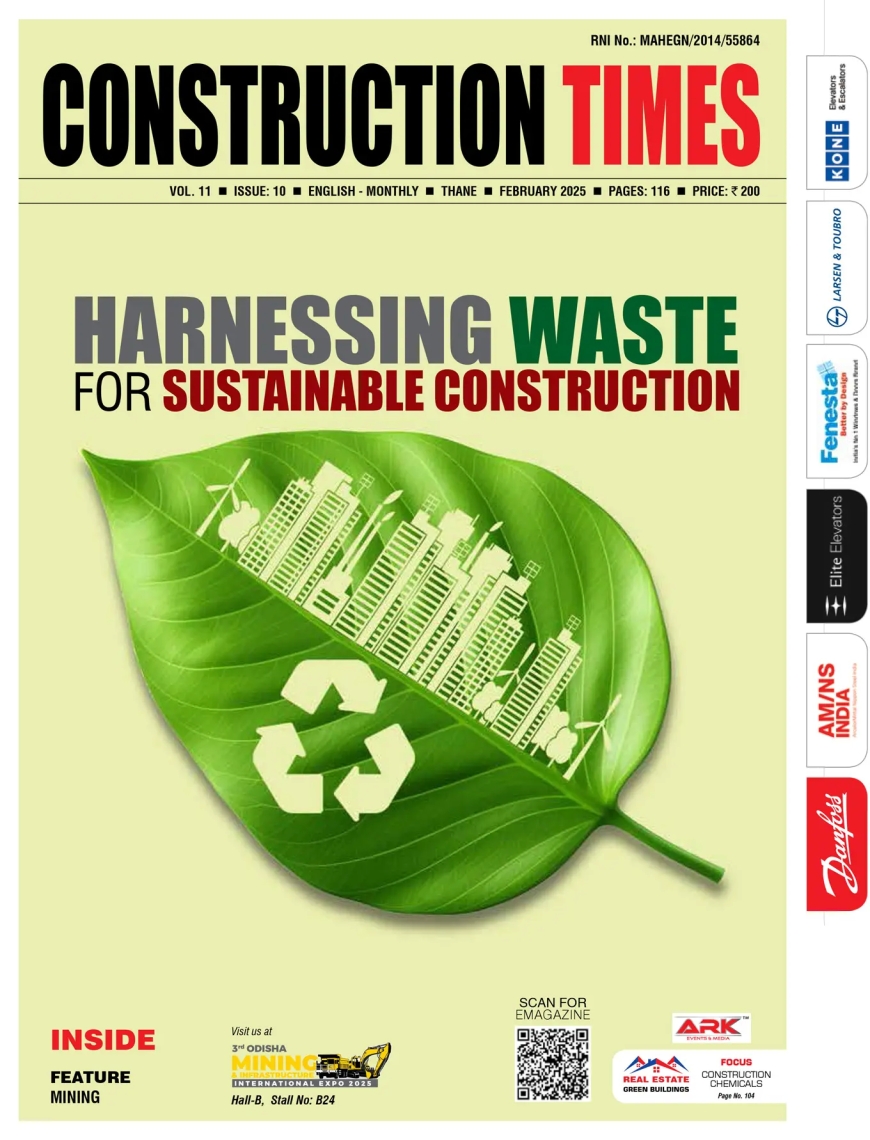Exceptions to Exemption of Liability Clauses in Case of DELAY IN CONSTRUCTION CONTRACTS.
Krrishan Singhania & Alok Vajpeyi highlight various remedies which a contractor has in case there is an exclusionary clause exempting the government from any liability in case of delay. An exclusion clause is a term of a contract which either excludes or limits any liability of party to the contract for a breach



Krrishan Singhania & Alok Vajpeyi highlight various remedies which a contractor has in case there is an exclusionary clause exempting the government from any liability in case of delay.
An exclusion clause is a term of a contract which either excludes or limits any liability of party to the contract for a breach that would have arisen in the absence of such a term. There are several ways in which a party may curb or reduce its liability in a contract. In various government related construction contracts, there is a provision which states that even if the delay is attributable to the employer (government), no liability for damages can be affixed on the employer. This generally happens as these contracts provide the government with an upper hand to set the terms of a contract while dealing with contractors. The government enters into a standard contract basis wherein the terms of the contract are pre-drafted by government; and the contractor having weaker position is supposed to sign on the dotted line without having any opportunity to get the terms changed.
As a general rule, in absence of any fraud, mistake or misrepresentation, a party signing a written contract is bound by its terms. Where a document containing contractual terms is presented by one party to the other before or at the time when the contract is made, the recipient who accepts the document will be bound by those terms, if he knows the document contains contractual terms or if the other party has taken reasonable steps to draw his attention to the presence of such terms.
The question which is then asked is what remedy the contractor has in case there is an exemption clause in case of delay in the construction contract. The courts have carved out certain exceptions to such exemption clauses in order to avoid undue advantage to the employer on account of its own delay. In this article, the author has mentioned some of these exceptions carved out by the Court through various judgments and other remedies available with the contractor. There are various remedies which a contractor has in case there is an exclusionary clause exempting the government from any liability in case of delay, some of them are as follows:
Section 54 of the Indian Contract Act, 1872 ('Contract Act')
Under Section 54 of the Contract Act, it is stated that a promisor who does not perform his part of the promise cannot claim performance of the reciprocal promise. In other words, if a defaulting party has derived any advantage under a contract, the defaulting party who has committed the breach cannot retain the benefit and would have to compensate the non-defaulting party.This provision can be explained by way of an illustration, A contracts with B to execute certain builders' work for a fixed price, B supplying the scaffolding and timber necessary for the work. B refuses to furnish any scaffolding or timber, and the work cannot be executed. A need not execute the work, and B is bound to make compensation to A for any loss caused to him by the non-performance of the contract. Therefore, if the contractor can establish that the delay was due to omissions from the side of the government then this provision can be utilised against the exemption of liability clause mentioned under the contract.
Giving Notice to the Government
A contractor facing an issue of delay in the contract can claim damages provided it gives notice to the employer regarding such damages at the time of extension of the contractual period. The Supreme Court in the case of Northern Railway v. Sarvesh Chopra1 noted that a contractor (the non-defaulting party) would be entitled to claim damages provided that at the time of acceptance of 'extension of time' request for performance of the contract, the contractor gives notice of his intention to claim damages for the delay. The Court noted that:
“Thus, it appears that under the Indian law, in spite of there being a contract between the parties where under the contractor has undertaken not to make any claim for delay in performance of the contract occasioned by an act of the employer, still a claim would be entertain able in one of the following situations: (i) if the contractor repudiates the contract exercising his right to do so under Section 55 of the Contract Act, (ii) the employer gives an extension of time either by entering into supplemental agreement or by making it clear that escalation of rates or compensation for delay would be permissible, (iii) if the contractor makes it clear that escalation of rates or compensation for delay shall have to be made by the employer and the employer accepts performance by the contractor in spite of delay and such notice by the contractor putting the employer on terms.”
Payment Assurance Given by the Government
Another exception to the exemption clause in case of delay is those cases where the government gives assurance of extra payment at the time of extension of the contract. The Apex Court in the case of Asian Techs Ltd. v. Union of India recognized the power of the arbitrator to not recognize the exemption clause provided under the contract in a situation where the government has assured the contractor extra payment at the time of the extension.
If the Delay is Solely Attributable to the Government
The Supreme Court in the case of K.N. Sathyapalan v. State of Kerala3 recognized that where the failure of one of the parties to fulfil its contractual obligations has a direct bearing on the work to be executed by the other party then the arbitrator can compensate the other party for the extra cost incurred by it consequent to such failure by the first party. In this case, construction work entrusted to the contractor by the state government was delayed due to the law and order problems created by the local miscreants at the worksite coupled with inaction of the part of government to control them. Further non supply of rubble and material from departmental quarry, compelled the contractor to bring the same from distant places at higher transportation charges. Moreover, the contractor had to bear extra cost in dumping the excess earth at a distant place due to omission on the part of the State government to provide dumping space.
The Court held, that in such circumstances, even in the absence of any price escalation clause in the contract and despite the prohibitory clause in the supplemental agreement, the arbitrator was well within his jurisdiction in allowing contractor's claims on account of escalation of costs under the said heads during the extended period.
The Delhi High Court, in Express Engineering & Construction Company v. Delhi Development authority4, did not interfere with the arbitral award which allowed the damages to the contractor for increase in prices which resulted due to prolongation of work. The delays were due to the Respondent and Respondent contended that the award is against exclusion clause provided under the contract.
Exclusionary Clause Void ab initio
The Delhi High Court in the case of Simplex Concrete Piles (India) Ltd. v. Union of India5 decided an issue that whether a contractual clause can dis-entitle a party from claiming damages which a party is otherwise entitled to under law. The arbitral award was challenged in these proceedings, the plea taken in the challenge was even if there is a contractual breach, damages cannot be claimed by the contractor in view of the contractual terms between the parties. The Court held that the rights under Section 73 (right to claim damages) of Contract Act cannot be waived if there is a public policy or public interest element in these sections, in other words, contractual clauses which disentitle the aggrieved party to benefits of Section 73 would be void being violative of public policy.
Challenging the Exclusionary Clause
It is relevant to note that the Supreme Court in the case of Central Inland Water Transport Corporation v. Brojo Nath Ganguly6, had held that the courts will not enforce and will strike down an unfair and unreasonable clause entered into between parties who are not equal in bargaining power. Moreover, an exclusion clause may be deprived of effect if it is repugnant to other provisions of the contract. Where the exclusion is contained in a printed standard form of contract and there is a conflict between it and another clause, written or typed in or otherwise added, the latter will prevail.
Conclusion
The courts have time and again tried to maintain the balance between the freedom of parties to enter into various contractual stipulations and restricting the use of unreasonable terms under the contract. Moreover, the courts have created enough safeguards for the contractors facing issues with the exclusionary clauses protecting the government from any kind of liability in case of delay in performance of contract. However, even though it may be difficult for a contractor to negotiate upon the contractual terms with the government; it is suggested that a contractor discusses any such exclusion or unreasonable terms with the government entity when entering into the contract and seeks appropriate legal advice for the purpose of overcoming the difficulty posed by these exclusion clauses.
- (2002) 4 SCC 45.
- (2009) 10 SCC 354.
- (2007) 13 SCC 43.
- ILR (1995) 2 Del 66.
- ILR (2010) 2 Del 699.
- AIR 1986 SC 1571.


Hits: 1269
















